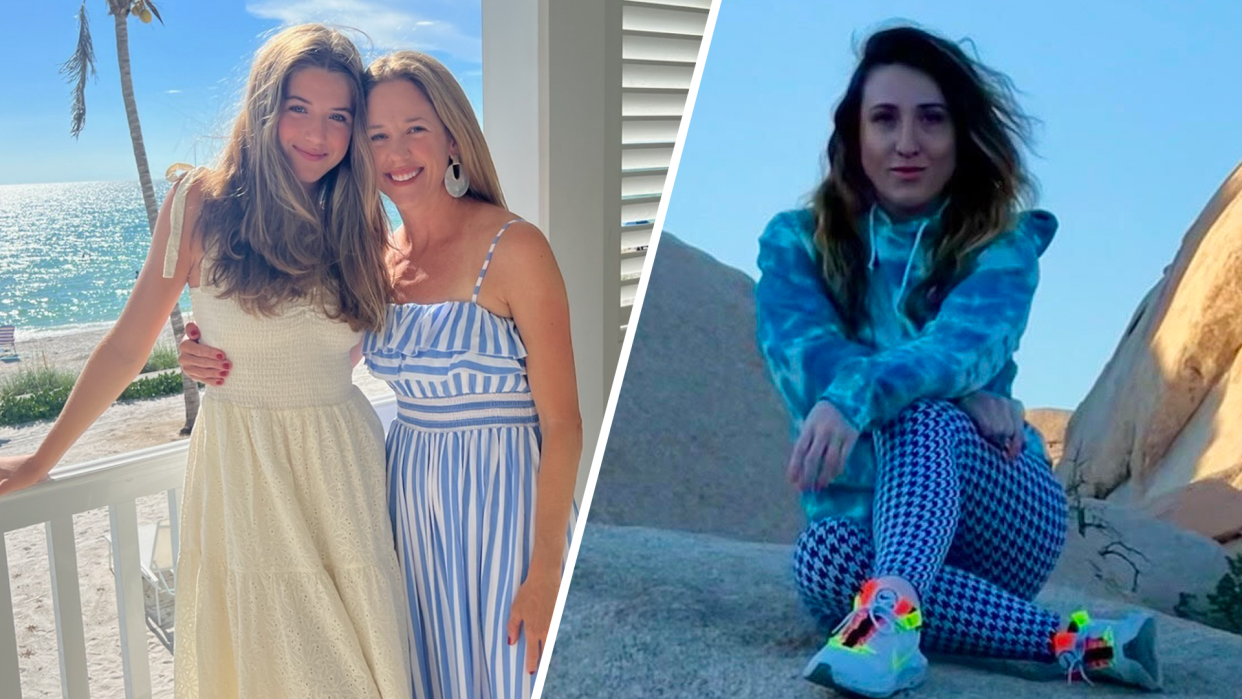Women are finding out their 'rare' health issues aren't actually that uncommon thanks to social media

Thanks to social media, a growing number of people have found that health conditions they were once told were rare aren't that uncommon after all.
One such person is 39-year-old Mia, who posted on TikTok about experiencing painful Bartholin's cysts. In a video that's been liked nearly 53,000 times, Mia, who asked that her last name not be shared, said that she spent weeks trying to get a proper diagnosis after developing severe pain along her vulva. Mia tells Yahoo Life that she finally was diagnosed correctly after her second trip to the ER, and was told at the time that Bartholin's cysts happen in only about 2% of women. But the comments section on Mia's post was flooded with messages from other women who said they experienced the same thing.
"I've had several Bartholin's cysts, and they are excruciatingly painful," one commenter shared. "The moment you said 'hard lump,' I knew it was Bartholin's cyst," another wrote, before noting that they "had it three times."
"I read that it only happens to 2% of women, but I have a feeling now that it's more," Mia says. "I saw quite a few women go, 'Wow, I finally have a name for this thing I've been dealing with.'"
Claire Barrow, 15, understands how important it is to connect with others who are experiencing the same rare health issues. Barrow tells Yahoo Life that she wanted to help connect people with rare conditions after she was diagnosed with hypophosphatasia, an inherited disorder that affects the development of bones and teeth, in 2019. So, she co-created Rare Guru, a platform where people with rare diseases can find each other. "I was lucky enough to connect with someone a little older than me who had the same condition, hypophosphatasia," she says. "Her experience was extremely similar to mine. ... Hearing her story really made me feel seen."
The term "rare" is a little confusing in the medical community. While a doctor may use it to describe something they don't see often or that happens much less often than other conditions, there is an actual definition that not everyone follows. Debbie Drell, director of membership at the National Organization for Rare Disorders (NORD), tells Yahoo Life that NORD takes its cue for what qualifies as a "rare" disease from part of the Orphan Drug Act, which states that a rare disease is one that "affects fewer than 200,000 persons in the United States."
But Drell stresses that having a rare disease or condition doesn't mean that no one else has it. "My sister Alex was diagnosed with a rare disease, pulmonary hypertension, in 1998 and at the time, it felt like no one else had this disease," she shares. "No one in our family, not one of her friends, no one in her small town in Texas knew about this disease — let alone was diagnosed with it." But, Drell says, "in reality, thousands of people were living with this rare disease in the country at the time — she just didn't know about them."
Drell says that it's now "so common" for people with a health condition to search online about what they're experiencing. "There is a lot of value in connecting with other people living with rare diseases," she says. Drell notes that it can help combat the natural feeling of isolation that can come with having a health condition that's not well known. "Connecting with other people helped my sister to feel less afraid of her disease," Drell says. "She could see how other people were living their best lives, and she learned new hacks and life skills for managing her specific issues."
When people with the same health condition connect with each other, says Drell, they form a community — and that can lead to sharing information about research, clinical trials and treatments. "A community is powerful in that knowledge is shared, support is provided and advocacy can come to fruition," she says. "A group is the precursor to the formation of a nonprofit organization — and with this organizational infrastructure, a community can more efficiently amplify their voice to be heard by policymakers, clinicians, researchers and developers."
After her diagnosis, Mia says she was "so desperate" to find someone else who had a similar experience. "I found one support group, gave women my phone number and said, 'Call me,'" she says. "It was important to me to try to help share what I had learned, and it was also nice to connect with people who just understood."
Drell offers this advice for people with rare conditions: "Don't go it alone."
Wellness, parenting, body image and more: Get to know the who behind the hoo with Yahoo Life's newsletter. Sign up here.
